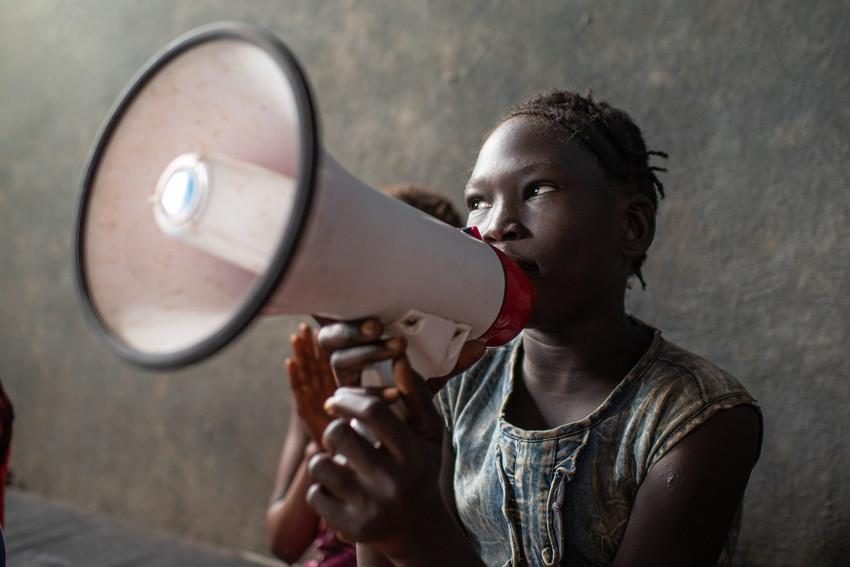17 JUNE 2020
Consultations with adolescent girls and young women in refugee and displaced settings show that, despite the many challenges they face, they also have resilience and hope for the future.

In refugee camps and settlements, girls are using their leadership skills both in response to the COVID-19 crisis and in addressing other issues – the lack of money, food and safety, which continually affects their lives.
Here’s how girls have been taking the lead.
In Jordan’s Azraq refugee camp
Under some of the strictest lockdown conditions in the world young women and girls have taken on the responsibility of protecting and engaging some of the most vulnerable groups in the camp. When the lockdown came into effect, young women helped distribute handicraft kits to mothers and girls so that they could join digital sessions on how to make face masks.
Via social media, young women in the camp are leading classes in parenting, life skills and literacy and youth club sessions. Additionally, girls in the camp have been taking on leadership roles as part of their Youth Committees. They have helped facilitate online life skills sessions for children that highlight issues such as girls’ rights, mental health, wellbeing, education and safe spaces.
Rasha, 16, Jordan
“It gives me great joy, not only because I am educating people but also because I’d like to believe that I am bettering the lives of women and families around me.”
In Tanzania’s Nyarugusu, Mtendeli and Nduta refugee camps
Older Burundian adolescent girl refugees are using their skills and experience to help others in the camps. This includes supporting vulnerable girls through peer-to-peer activities, collecting information on issues affecting girls through a children’s parliament and engaging with service providers to address the issues they have raised.
With schools in refugee camps closed, young women and older adolescent girls are also involved in a mentorship programme that helps in distributing school materials and providing learning support to students and their parents at home. If there is an outbreak of COVID-19 they will play a critical role by providing additional child protection support to affected families.
In Egypt’s Syrian refugee community
Basma, 21, is using puppetry to teach child-friendly messages about COVID-19.
During the current pandemic adolescent Syrian refugee girls and young women living in Upper and Lower Egypt and Greater Cairo, have been playing a vital role in disseminating awareness raising messages about COVID-19 and addressing the emotional impact of the curfew on their peers.
“All of us, not just girls, are experiencing the negative feeling of fear and that we are responsible not only for ourselves but for the safety of others. So, we must support each other and always remain positive,” says 14 year old Sara.
In the Kalyoubya governorate, a youth-led initiative is using social media platforms to communicate child-friendly messages to children on COVID-19 prevention – including through the use of short puppet videos.
In addition, young women are addressing the rising trend of sexual and gender-based violence by offering peer-to-peer support to adolescent girls and women and alerting them to any available services.
Refugee girls show their leadership qualities
The impact of COVID-19 on girls and young women – on their health, safety and opportunities for education and decent jobs – is making already difficult lives increasingly hard.
Despite the layers of discrimination that they face, they have incredible potential that can contribute to decision making, taking up leadership roles and supporting their communities during COVID-19.
Categories: Emergencies


